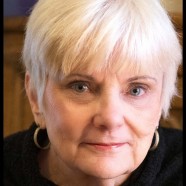
As we come up for air and look around, it is clear that the COVID-19 pandemic is not nearly over. Just yesterday the president pledged a half a billion doses to marginalized countries, matched by other members of the G7, as new variants of the virus appear. At home, there are still too many states where low vaccination rates may be a reflection of conspiracy theories. A single political party remains united behind the former president, determined to stymy sweeping proposals on infrastructure, voting rights and on the creation of a January 6th Commission.
Though Seattle has its share of political chaos, some sorting of the governance model is evident with two council races, a mayoral race with as many candidates as New York City, and a recall effort underway on a third council member. The mayor was able to report last week that Seattle has become the first major American city to fully vaccinate 70% of its residents 12 years and older, with 78% of its population having had the first vaccination. Credit for our progress in this state on the COVID-19 front belongs primarily to Governor Jay Inslee, whose leadership has been consistent, with clear guidance to citizens and businesses on the metrics for various phases of recovery.
On a personal note, now that we can walk outdoors without masks, the world has become larger. That with which we had gone without for nearly 15 months is at once familiar and new. My husband and I made our return to public life in early May when we visited the Seattle Art Museum to see remarkable exhibitions by Jacob Lawrence and Barbara Earl Thomas. I hosted a colleague from back East later in May on the patio of our local bookstore/café. I have more such meetings now booked.
For four straight quarters I have taught students from our Informatics undergraduate program as well as graduate students in information management. I have never met most of these students face to face, and that pains me still. So many of them have had hardship and sorrow in their lives as they complete their coursework and hold down jobs at the same time. Some of them are international students who miss their families deeply as their time here is spent in isolation from human contact.
In addition to magnifying fissures in our society, another side effect is related to the isolation we have experienced. It is one we will need to overcome to go back to our workplaces with some degree of grace. I am talking about a state of self-absorption and judgmental sternness that is probably a function of exhaustion and loneliness. While some like the anonymity of a 100% online meeting, seeing it as an equalizer of voices, I see no advantage in typing “+1” into the chat in response to a comment. It is difficult to have conversations of substance by phone or online. Matters that I would have handled during or after class with an informal conversation or a hallway conversation assume a different intensity with technology involved. Like other patterns of entrenchment that we see across society today, if matters are not actually discussed then they become hardened positions without much examination or self-reflection.
I plan to spend the summer watching peoples’ faces and body language, pausing to hear what is being said without impatience, and meeting with a broader circle of friends and colleagues than has been possible for the past year or so. Emily and I will be moving Volume VI of Reflections on Risk into publication in the late summer but postponing the special edition volume until we have had some breathing room. We wish you each well with whatever form of decompression you chose as we move back into the public sphere.
Originally Published in ASA News & Notes June 14, 2021









